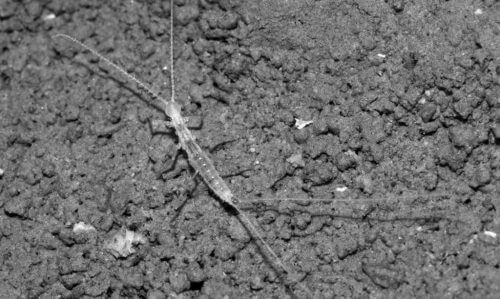It turns out that all that is needed to identify a new species of insect that was previously unknown to science is just a piece of fragrant cheese

By Zwata, Science and Environment News Agency
A scientific expedition of biologists and speleologists that worked for about two years in a group of caves in eastern Turkmenistan in Central Asia identified a tiny and unique insect in one of the caves: eyeless, multi-legged, with transparent skin, two tails and equipped with two long antennae on the sides of its head.
In order to make sure that it was indeed a new species, the researchers of course had to examine the creature closely, but the problem was that it was an extremely shy insect that lives in particularly narrow cracks in the rock. The researchers tried to catch a detail in different ways, until one of them had a brilliant idea: they placed pieces of fragrant cheese (so far it has not been revealed what kind and from which company) next to piles of bat excrement at the bottom of a cave called Capterahana, one of the largest caves in an underground and branching system of about 300 caves in the area - and waited.
The anticipation and creativity paid off. The cheese attracted the insect and the researchers were able to capture it and present it as a new species, which was named "Turkmenocampa mirabilis” – a combination of the place where it was discovered and the word Mirabilis (amazing, in Latin). Biologists who specialize in the study of caves sometimes use meat, fruit or other rotten foods, and sometimes even their secretions, to whet the appetite of the cave dwellers and make them come out of their hiding places. Now they can also add cheese to their culinary toolbox.
The new study in which the insect was revealed Recently published in the journal Subterrean Biology And the lead author of the study, Dr. Alberto Sandra from the Spanish University of Alcalá, said after the publication that "not only is this a new discovery, but it is a truly unique product that has undergone an extraordinary evolutionary journey so that it can adapt to the underground conditions in which it lives."
"We hope that our discovery will also bring more awareness to the scientific importance of this area as a refuge for various local species and the fact that not enough is being done to preserve it," Sandra added.

One response
It is indeed interesting, but it is appropriate that the writers do not slip into street language
In it, everything is "amazing" because in Leaz it is amazing
amazing or astonishing,
while the meaning of the word mirabilis is pilai or great,
There's a difference !